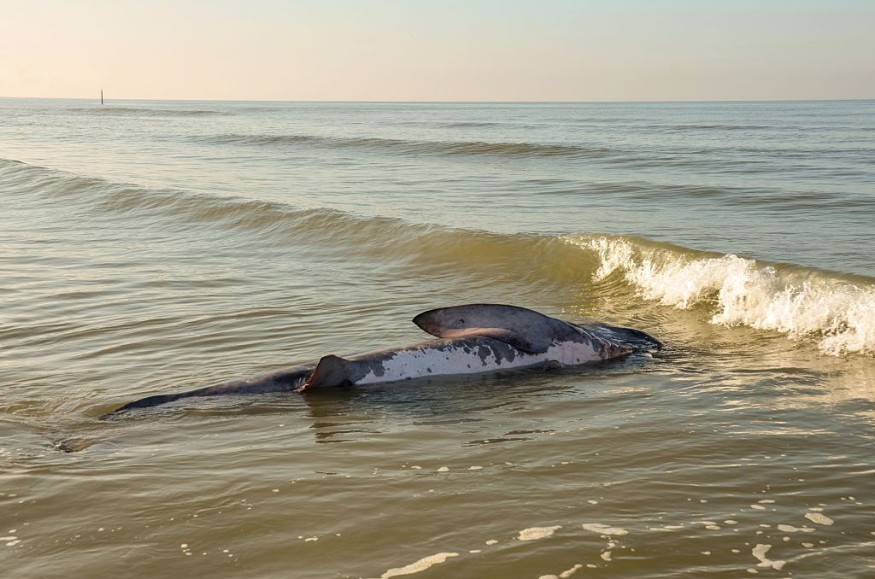Basking shark sightings have significantly decreased off the coast of California over the past five decades. This was confirmed by a new study by marine ecologists.
Once thriving near the Pacific Ocean coasts of California, the sharks are rarely seen nowadays.
Basking sharks are present in all oceans of the planet but their presence in the California waters has declined, marked by heavy fishing and hunting of the sharks during the mid-20th century.
In light of the new study, basking sharks now are rare to find with scientists aiming to understand further the event.
The Decline of Sightings in California

Marine ecologists have confirmed that there is a dramatic decline in basking shark sightings off the coast of California or in the so-called California Current Ecosystem (CCE) region since the 1970s, according to a new study published in the Frontiers in Marine Science on Feb. 17.
There were sightings of approximately more than 4,000 basking sharks in California every year from the 1960s until the 1990s.
There were no sightings of the basking sharks until then until 2019.
Furthermore, there was a 50% decline in the sharks' school size between the 1960s and 1980s, as per ScienceDaily.
The study's marine ecologist researchers compiled historical data since the 1960s and analyzed the movement of basking sharks in the CCE region.
Furthermore, the study also suggested conservation mechanisms to protect basking sharks.
Some of these methods include determining the population of basking sharks, monitoring their movement, and creating region-wide regulations concerning endangered species.
Basking Shark Morphology and Diet
The basking shark can be compared to the size of a school bus and this aquatic animal is reportedly the second-largest living fish in our oceans today.
A majority of basking sharks are found in temperate and tropical waters worldwide, including in the Pacific Ocean, according to the study cited by Phys.org.
Basking sharks were once thought to be great white sharks due to the former's large bodies resembling that of the latter.
In addition, basking sharks are not carnivorous and focus their diet on the smallest of marine organisms.
Unlike the great white shark, basking sharks are known to be gentle creatures that do not pose a threat to humans. Their main diet is the microscopic animals called zooplankton.
Basking sharks always open their mouth widely to catch zooplanktons.
History of Basking Shark Sightings in California
Basking shark sightings in the Western US Pacific Ocean coast were once common, ranging around hundreds of thousands of basking sharks.
The sightings have attracted both locals and tourists along with California's coastal areas.
However, excessive fishing for oil and fish meal in the US until the 1950s has resulted in population decline over the decades, as per the National Park Service - U.S. Department of the Interior.
A scientific study and wildlife monitoring efforts of basking sharks proved to be challenging since then.
Related article: Gargantuan Basking Shark After a Plankton Gives Students a Big Scare
© 2025 NatureWorldNews.com All rights reserved. Do not reproduce without permission.





